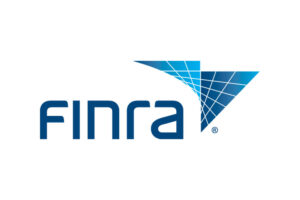Initial Public Offerings (IPOs) are complex financial events that mark a significant milestone for companies seeking to raise capital by transitioning from private to public ownership. Among the numerous stakeholders and service providers involved in this process, the transfer agent plays a critical but often underappreciated role. This article delves into the essential functions of a transfer agent in an IPO, highlighting their contributions to ensuring the success and compliance of the offering.
What Is a Transfer Agent?
A transfer agent is a specialized financial services company tasked with maintaining records of an organization’s securities ownership. They serve as the primary liaison between the issuing company and its shareholders. Transfer agents ensure accurate recordkeeping, manage shareholder communications, and handle a range of administrative functions related to securities transactions.
In the context of an IPO, the role of the transfer agent expands significantly as they facilitate the transition of ownership records, support regulatory compliance, and assist in shareholder relations during the offering process and beyond.
Key Responsibilities of a Transfer Agent During an IPO
- Recordkeeping and Shareholder Management The transfer agent maintains a comprehensive record of all shareholders, ensuring the accuracy of ownership information. When a company goes public, this involves migrating data from private equity records to public equity systems. This transition requires meticulous attention to detail to avoid discrepancies in shareholder information.
- Stock Issuance and Allotment One of the transfer agent’s primary tasks during an IPO is to manage the issuance of new shares to investors. They work closely with the underwriters, the company, and regulatory bodies to ensure the accurate allocation of shares according to the terms of the offering.
- Facilitating Regulatory Compliance The IPO process is heavily regulated, and compliance with these regulations is critical to avoid legal complications. Transfer agents play a pivotal role in ensuring that the issuing company adheres to all applicable securities laws. This includes verifying the eligibility of investors, adhering to anti-money laundering (AML) regulations, and ensuring compliance with reporting obligations.
- Dividend Distribution Although dividend payments are not always a focus immediately after an IPO, transfer agents are responsible for managing the distribution of dividends to shareholders. This involves calculating payouts, withholding applicable taxes, and ensuring accurate and timely payments.
- Shareholder Communication During an IPO, effective communication with investors is essential. The transfer agent facilitates this by distributing key documents such as prospectuses, annual reports, and shareholder meeting notices. They also act as a point of contact for shareholders, addressing inquiries and resolving issues related to their investments.
- Managing Escrow Accounts and Lock-Up Agreements Transfer agents often oversee escrow accounts and manage lock-up agreements for pre-IPO shareholders, such as company founders, executives, and early investors. These agreements restrict the sale of shares for a specified period after the IPO to stabilize the stock price. The transfer agent ensures compliance with these agreements and facilitates the eventual release of restricted shares.
- Transition to Post-IPO Operations Once the IPO is completed, the transfer agent plays a vital role in ensuring a smooth transition to the company’s post-IPO operations. They manage ongoing shareholder records, process transfers of shares, and provide reporting tools that help the company maintain compliance with regulatory and governance requirements.
Technology and the Modern Transfer Agent
In recent years, the role of transfer agents has evolved significantly with the advent of technology. Many transfer agents now leverage advanced software and blockchain technology to enhance the efficiency and security of their services. Digital shareholder registries and online portals allow for seamless communication between issuers and investors, while blockchain-based systems reduce the risk of errors and fraud in securities transactions.
These technological advancements have become particularly relevant in IPOs, where large volumes of data must be processed quickly and accurately. By adopting innovative solutions, transfer agents have positioned themselves as indispensable partners in the modern capital markets ecosystem.
The Transfer Agent’s Impact on IPO Success
The success of an IPO depends on many factors, including the smooth execution of administrative and compliance-related tasks. The transfer agent’s ability to maintain accurate records, ensure regulatory compliance, and foster positive shareholder relations is critical to achieving these goals. By handling the logistical and administrative complexities of the IPO, transfer agents enable the issuing company and its management team to focus on strategic objectives, such as attracting investors and building market confidence.
The role of the transfer agent in an IPO is multifaceted and indispensable. From maintaining shareholder records to ensuring regulatory compliance and facilitating effective communication, transfer agents serve as the backbone of the IPO process. Their expertise and reliability provide stability during a period of significant transformation, laying the groundwork for the company’s future as a publicly traded entity.
As the IPO landscape continues to evolve, driven by technological innovation and changing regulatory frameworks, transfer agents will remain key players in supporting companies through their journey to the public markets. By understanding and appreciating their role, companies can better navigate the complexities of an IPO and set the stage for long-term success.







